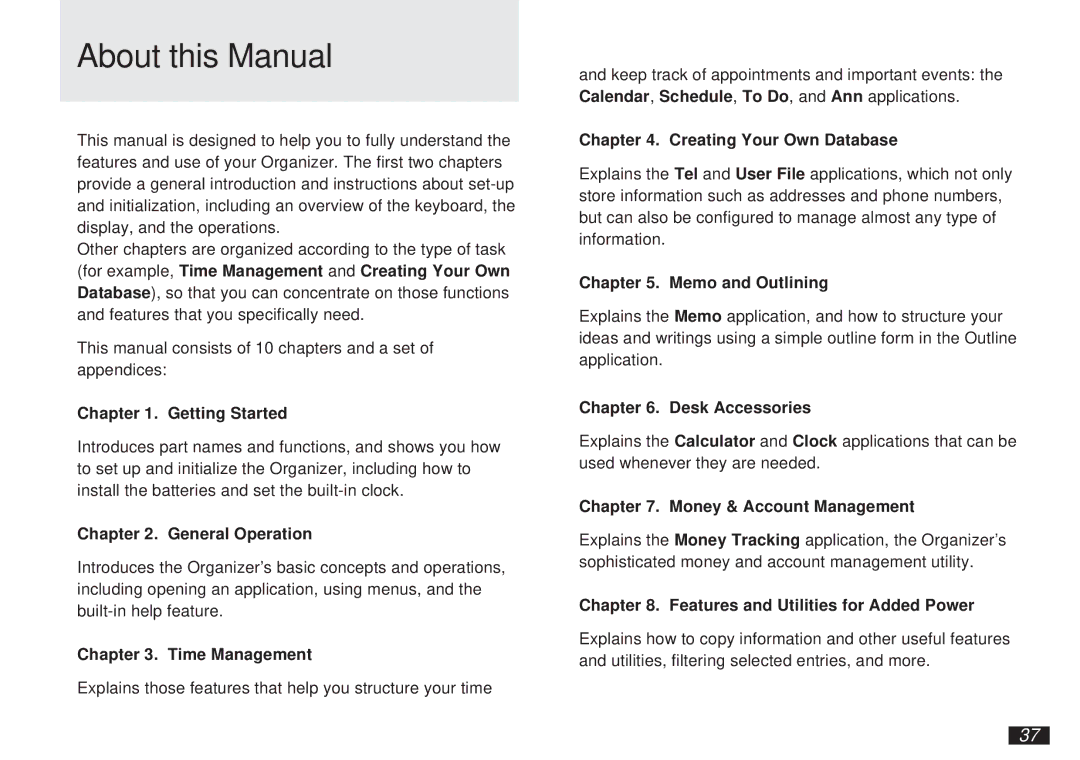
About this Manual
This manual is designed to help you to fully understand the features and use of your Organizer. The first two chapters provide a general introduction and instructions about
Other chapters are organized according to the type of task (for example, Time Management and Creating Your Own Database), so that you can concentrate on those functions and features that you specifically need.
This manual consists of 10 chapters and a set of appendices:
Chapter 1. Getting Started
Introduces part names and functions, and shows you how to set up and initialize the Organizer, including how to install the batteries and set the
Chapter 2. General Operation
Introduces the Organizer’s basic concepts and operations, including opening an application, using menus, and the
Chapter 3. Time Management
Explains those features that help you structure your time
and keep track of appointments and important events: the |
| 1 |
Calendar, Schedule, To Do, and Ann applications. |
| |
|
| |
Chapter 4. Creating Your Own Database |
|
|
|
|
|
Explains the Tel and User File applications, which not only |
| |
store information such as addresses and phone numbers, |
| |
but can also be configured to manage almost any type of |
| |
information. |
| |
Chapter 5. Memo and Outlining |
| |
Explains the Memo application, and how to structure your |
| |
ideas and writings using a simple outline form in the Outline |
| |
application. |
| |
Chapter 6. Desk Accessories |
| |
Explains the Calculator and Clock applications that can be |
| |
used whenever they are needed. |
| |
Chapter 7. Money & Account Management |
| |
Explains the Money Tracking application, the Organizer’s |
| |
sophisticated money and account management utility. |
| |
Chapter 8. Features and Utilities for Added Power |
| |
Explains how to copy information and other useful features |
| |
and utilities, filtering selected entries, and more. |
| |
37
